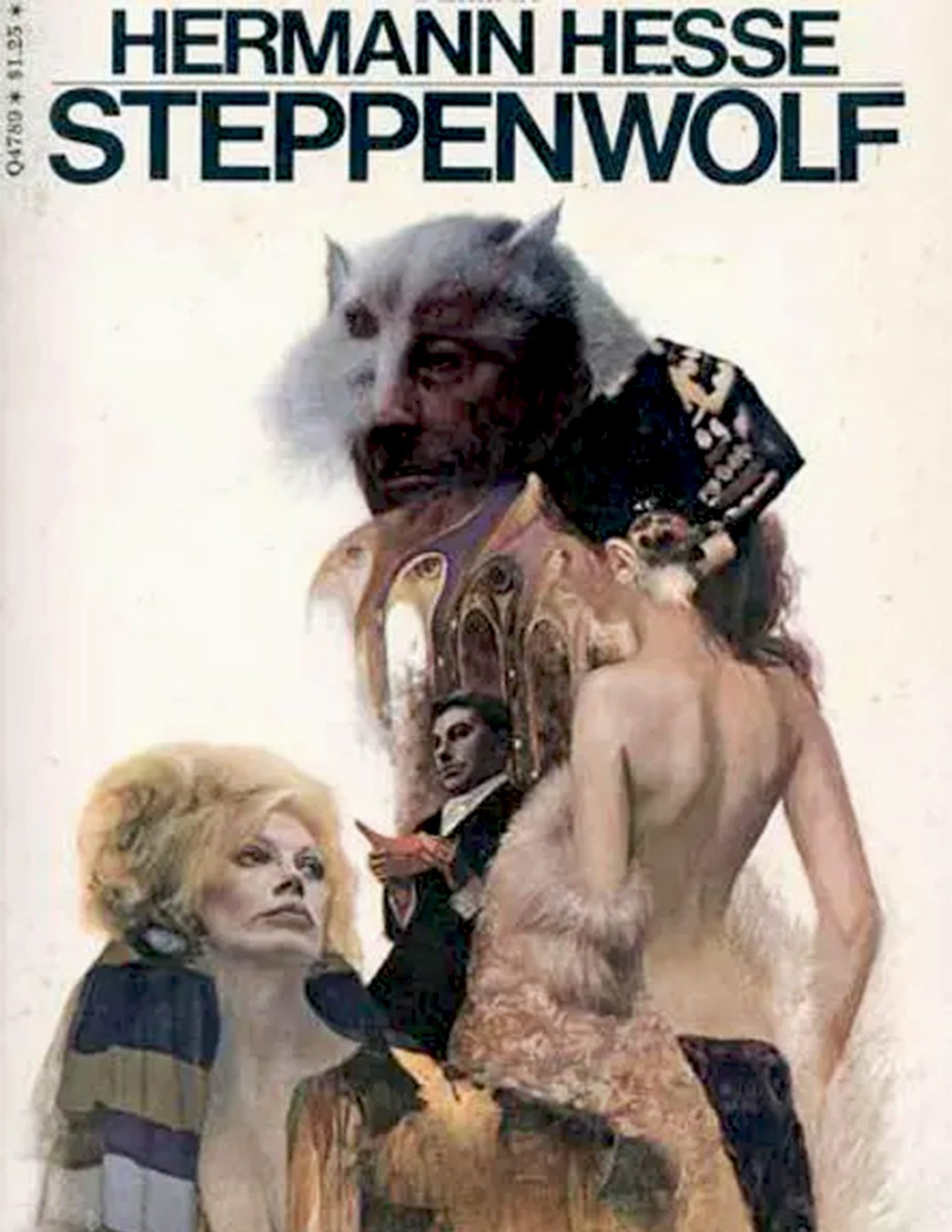
Steppenwolf
(Hermann Hesse, 1927)
In Steppenwolf, Hermann Hesse’s 1927 early-modern classic, a reclusive and shyly awkward middle-aged man named Harry leaves behind a manuscript named Harry Haller’s Records (For Madmen Only) for his boarding house neighbor. In this story-within-a-story, Harry details his feelings of despair and loneliness and reflects upon his distaste (and morbid fascination) for the homogeneity of burgeoning bourgeois society. Harry’s protagonist writes of a mysterious meeting with a man advertising for a ‘Magic Theater” who gives him a book titled Treatise on the Steppenwolf. Harry is frightened to learn that it describes him with great accuracy, even down to names and specific events in his life. The book also convinces Harry of man’s dual-nature; part man and part wolf, which further splits his psyche and intensifies Harry’s self-imposed alienation from society, leading him to fixate on the prospect of taking his life. However, a series of chance encounters fuels a dreamy and drug-fueled love affair with a pair of sexually-liberated working girls who try to show him how to find enjoyment in life. Because of these lurid passages, Hesse’s novel was extremely controversial upon release and garnered a taboo reputation over the subsequent years, although Hesse contended it was the most understood of all of his books. With philosophical influences from both the West and Eastern traditions and poignant reflections on death and suicide, Hesse’s novel is far more than just a shocking pulp story.


